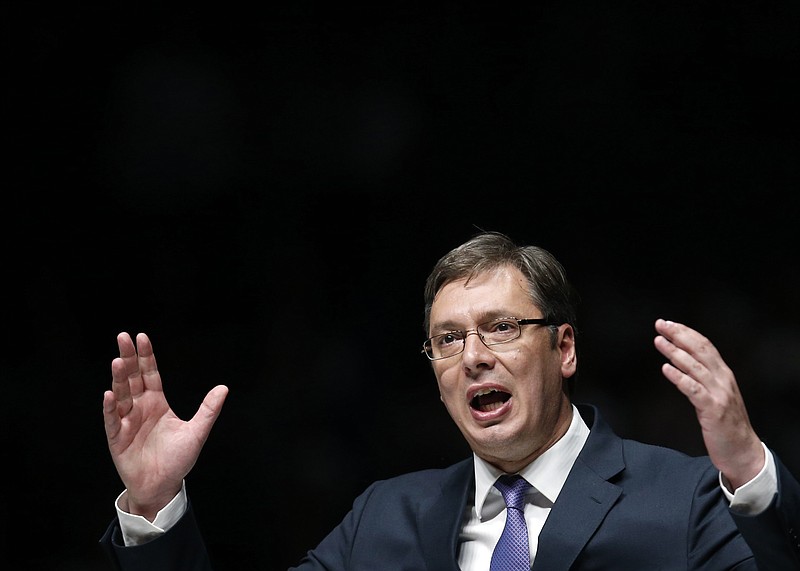BELGRADE, Serbia (AP) - Serbs vote in a snap election on Sunday that will test Prime Minister Aleksandar Vucic's proclaimed bid to lead the Balkan nation toward European Union membership. Vucic and his Progressive Party are expected to win most votes, but far-right groups favoring close ties with Russia over the EU bid have also surged. Here's a look at what's at stake:
WHY A SNAP VOTE?
PM Vucic called the election two years early, saying he needed a new mandate to implement some tough pro-EU reforms. The economy is in bad shape and reforms have been slow, so Vucic insisted he needs a fresh start to push things forward. But critics say he really wants to tighten his rule and win another four-year mandate while he is still popular.
___
WHO ARE KEY PLAYERS?
Vucic, who transformed from a nationalist into a reformer, holds a dominant position. His populist Progressive Party could win a majority and choose whether to rule on their own or in a coalition. Possible partners are the Socialists, a party once led by late strongman Slobodan Milosevic, who led Serbia into wars and isolation in the 1990s. A right-wing revival has also seen growing support for the Radical Party, headed by Vojislav Seselj who is slated to return to Parliament after being acquitted of war crimes by a U.N. tribunal. Liberal opposition groups are fragmented and sidelined, struggling to reach the 5 percent parliamentary threshold. They include a party led by ex-President Boris Tadic.
___
WHAT'S AT STAKE?
While no major surprises are expected, Sunday's vote could tilt Serbia to the right. Any rekindling of nationalism here, or elsewhere in the region, is considered more dangerous than in the rest of eastern Europe because of recent wars that claimed some 100,000 lives. Western countries have sought to pacify Balkan nations by keeping them on track for EU membership. This could fail if Serbia gives up EU integration and turns to Russia instead.
___
WHAT ARE MAIN ISSUES?
Vucic says he will speed up the EU course after the election. He has focused on foreign investments and restarting the economy. Seselj has said the EU and the West will never help Serbia prosper and has called for an alliance with Slavic ally Russia. Moscow is said to have stepped up its influence, battling to retain clout after most Eastern European nations joined EU and NATO. Liberal groups have accused Vucic of quashing dissent Putin-style.
___
VOTING:
There are 6.7 million voters. Polls are open between 0500 GMT and 1800 GMT. There are no exit polls in Serbia, but partial results usually offer reliable projections a few hours after polls close.
